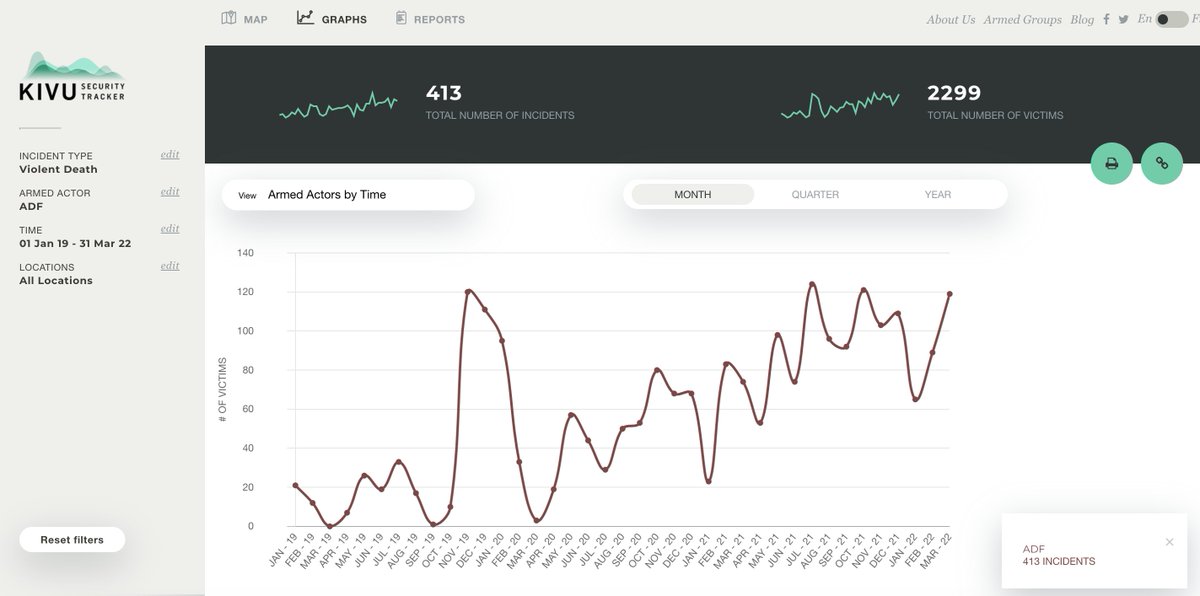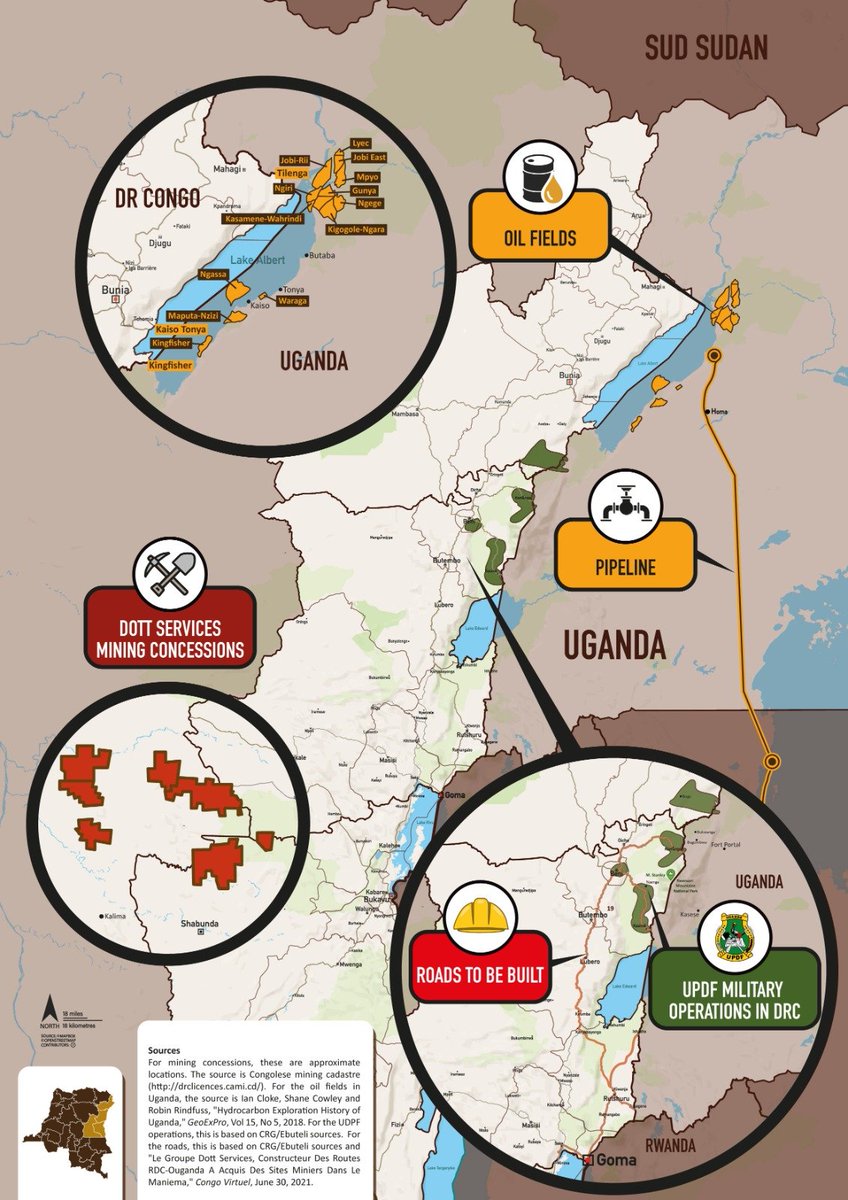
Today, @GEC_CRG and @ebuteli are publishing the report « Uganda’s Operation #Shujaa in the #DRC: fighting the #ADF or Securing Economic Interests?"
Read here: bit.ly/3xoTCYZ
With major fighting underway north of Goma, what are main takeaways? A 🧵.
Read here: bit.ly/3xoTCYZ
With major fighting underway north of Goma, what are main takeaways? A 🧵.

The resurgence of the M23 is in part linked to the launch of Operation Shujaa, the Ugandan military operation launched in November 2021 with the Congolese army and extended now. reuters.com/world/africa/u…
Those operations were triggered by a terrorist attack in Kampala in November 2021. Contrary to UPDF assertions, the operations have not decreased the operational capacity of the ADF. Massacres continue The ADF seem to have been displaced, not broken. 

But there were other interests driving the operations. Both oil and gold are seen to be the cornerstone of Museveni’s economic and political strategy as the septuagenarian heads toward his fifth decade in power. (See this article for more on this strategy)
tandfonline.com/doi/abs/10.108…
tandfonline.com/doi/abs/10.108…
Oil: The Lake Albert region is estimated to hold between 1 and 1.4 billion barrels, making Uganda the country with the fifth largest reserves in sub-Saharan Africa. The World Bank estimates that Uganda could earn $800m per year at the peak of oil production. 

Oil is located along border with Congo. Interviews with gov and business officials in Kampala suggest security is huge concern. Both the Ug gov and Total want to avoid scenario like Cabo Delgado, Mozambique, where insurgency put Total’s multi-billion-dollar investment on hold. 

Gold is also an important concern. In 2021, gold was Uganda’s most important export product, worth 2.24 billion USD. Most of this gold comes from Congo through a network of middlemen; a decline in access to Congolese gold would have major economic consequences. 

So it is not surprising that UPDF ops accompanied by road construction projects. These will strengthen trade. In 2019, the 2 countries agreed on construction and upgrading of 1,182 km of roads. They later agreed on immediate construction of 223 km of priority roads. 

But the roads may have another advantage for UG gov. The company building them, Dott Services, is reported close to presidency. The UG government has pledged $66 million. Dott has also received 7 large gold concessions in the eastern Congo during this period (in 2021). 

In sum, Uganda’s operations in the eastern Congo are as much an economic and political strategy as a military one.
This has put them in competition with Rwanda. Rwanda sees part of the eastern Congo as within its sphere of interest. For Rwanda there are also a variety of economic, political and security reasons. See here: bit.ly/3mPsX2B
A Rwandan company (Dither) also signed large mining contracts recently with the Congolese state. Its largest export is also gold. A good chunk of this is thought to come from eastern Congo.
africaintelligence.com/mining-sector_…
africaintelligence.com/mining-sector_…

This competition contributed to the reported backing of M23 by Rwanda. While this needs to be further researched, multiple sources (eyewitnesses, M23 members, diplomats, drone pictures) back this up.
The situation is dynamic––there appears to be a rapprochement now between Uganda and Rwanda following shuttle diplomacy by the president’s son @mkainerugaba. There are sources that suggest Uganda has also provided backing to the recent M23 offensive. This needs to be confirmed.
• • •
Missing some Tweet in this thread? You can try to
force a refresh





